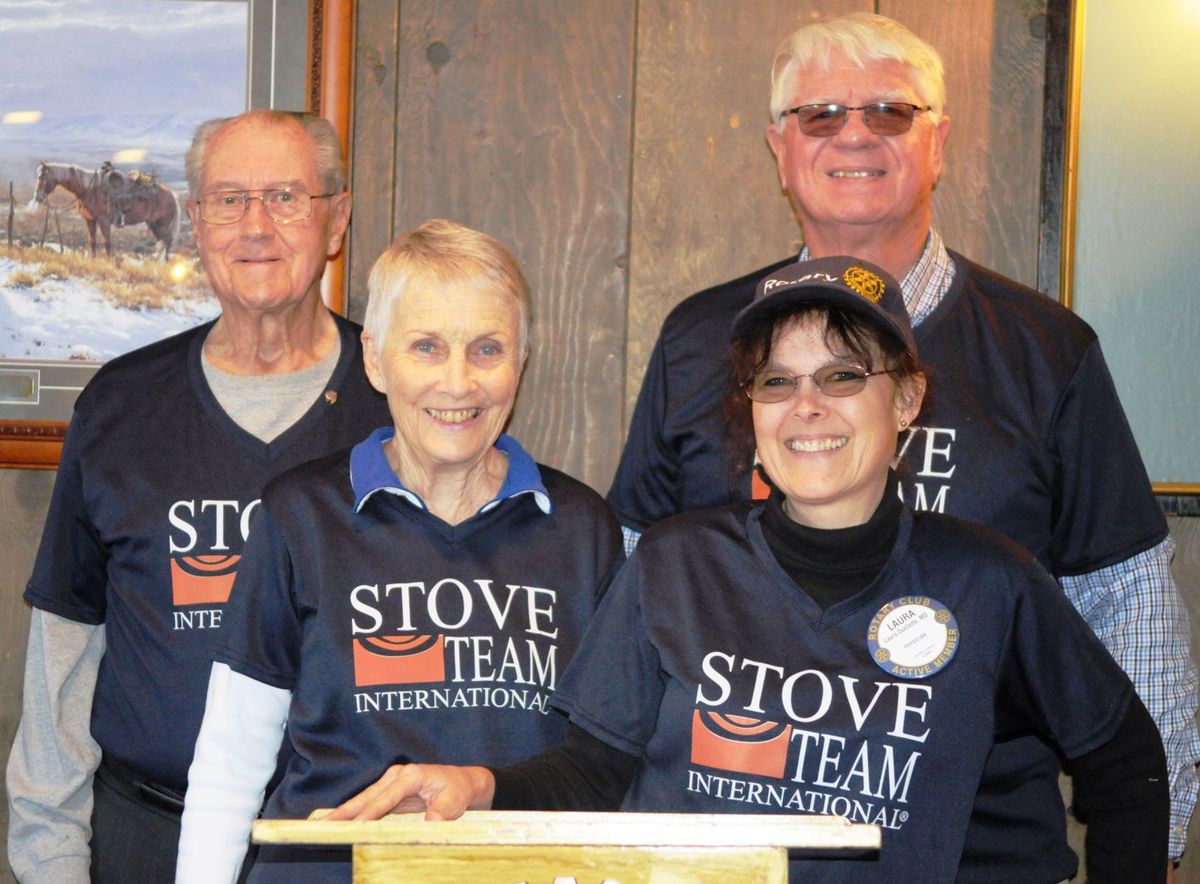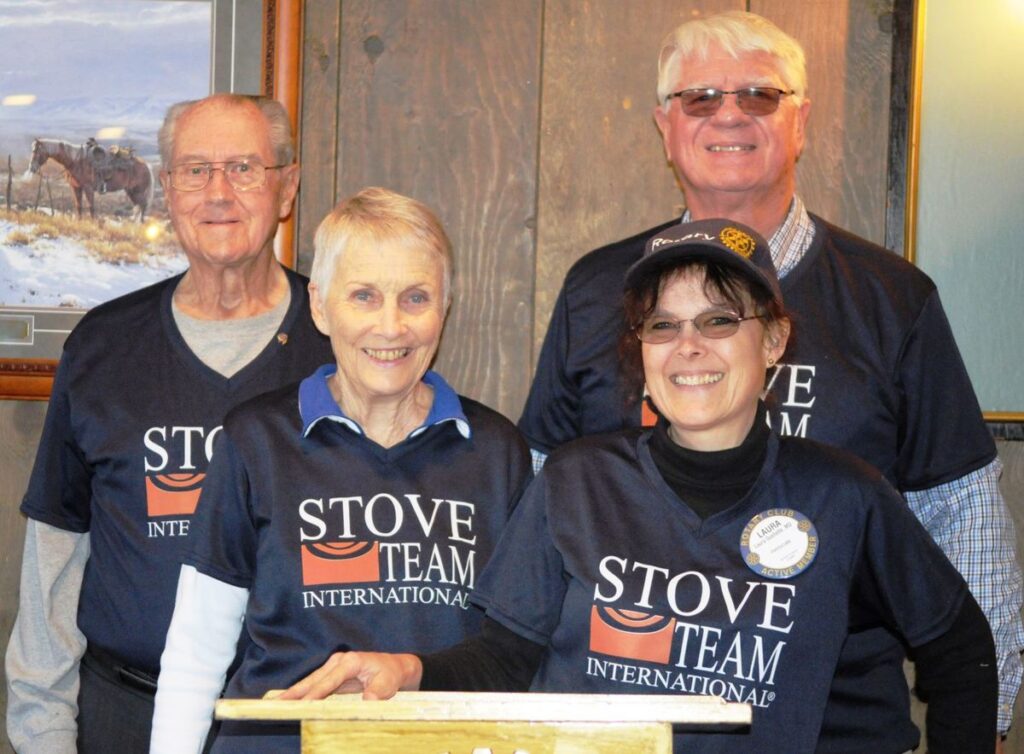Nearly 4 million deaths per year are attributed to the health effects associated with cooking over open fires in impoverished countries like Nicaragua.

Another 4 million women and children suffer severe burns from open fire burning, and families spend up to 20 hours per week gathering wood to cook meals.
But thanks to Rotary International — including the Albany Rotary Club (Oregon, US — D 5110) — volunteers and donors are placing eco-friendly, highly-efficient wood-burning Ecocina Stoves in thousands of homes throughout Central and South America.
A team from the Albany Rotary Club, including Dave Bussard, Laura Ouellette, Dave Schmidt and non-Rotarian Joanna Olson, spent the last week of January in Esteli and Casa Blanca, Nicaragua, touring a factory where the stoves are made and distributing them to local families.
The club donated $17,000 out of $85,000 total donated by clubs and others from the Rotary International District 5110.
The group outlined their adventures on Tuesday at Pop’s Branding Iron.
The Albany Rotary Club’s donation purchased materials used to build the stoves at a small factory in Esteli.
The Rotarians were part of a group of 19 volunteers that made the trip including several from Eugene and Springfield.
Bussard said the Casa Blanca area was devastated by Hurricane Mitch in 1998 and is still feeling its effects.
In a report to the club, Bussard said Avanza factory sales manager Elida Olivas noted her family “lost everything” in the hurricane and said the community has worked hard to rebuild.
Schmidt said it was enlightening to visit the small but efficient factory, where 48 stoves were constructed and distributed during their visit.
“There are four workers on the floor and they are all cross-trained,” Schmidt said.
“About 20 elements go into making each stove and it takes a couple of days because they are formed out of concrete and it takes a day or so for it to cure.”
Tile lines the interior of the stoves and then a steel mesh and cooking surface are placed on its top.
The stoves are insulated and highly-efficient.
“They require about 50 per cent of the wood currently used to cook meals,” Schmidt said.
“They produce far less smoke and children and women receive far fewer burns.”
Schmidt said about 67,000 stoves have been distributed in recent years, thanks to the programme started by Oregon Rotarian Nancy Hughes.
Ouellette said Rotary International’s goal is to not only support getting the stoves into the homes, but also to help support the small factories that produce them.
“There were 10 factories at one point and there are four left,” she said.
Projects are under way in Mexico, Guatemala, Nicaragua, Honduras and El Salvador.
Stoves cost only about $50, but in places like Nicaragua, that can be several day’s wages. Microloans are available for homeowners.
“We had a very positive experience,” Ouellette said.
“We had a great time and we were with a great mix of people.”
Ouellette, who is a doctor, said that in addition to the numerous health benefits of the stoves, they also decrease deforestation and pollution in the region.
Stove Team International estimates that some 500 million cooking fires emit nearly 1 billion tonnes of greenhouse gases annually.
To learn more about Stove Team International, visit www.stoveteam.org.
According to Stove Team International:
— Smoke from indoor cooking fires is a leading cause of death of children under age five and the world’s largest environmental killer.
— The Ecocina Stove reduces burns, plus respiratory, eye and skin problems.
— The stoves reduce carbon emissions and particulate matter by 70 percent.
— The stoves reduce wood use by more than 50 percent.
— The Rotary programme in Nicaragua creates local jobs in sustainable factories.
— Are portable and require no installation or chimney.
Source: Albany Democrat-Herald






